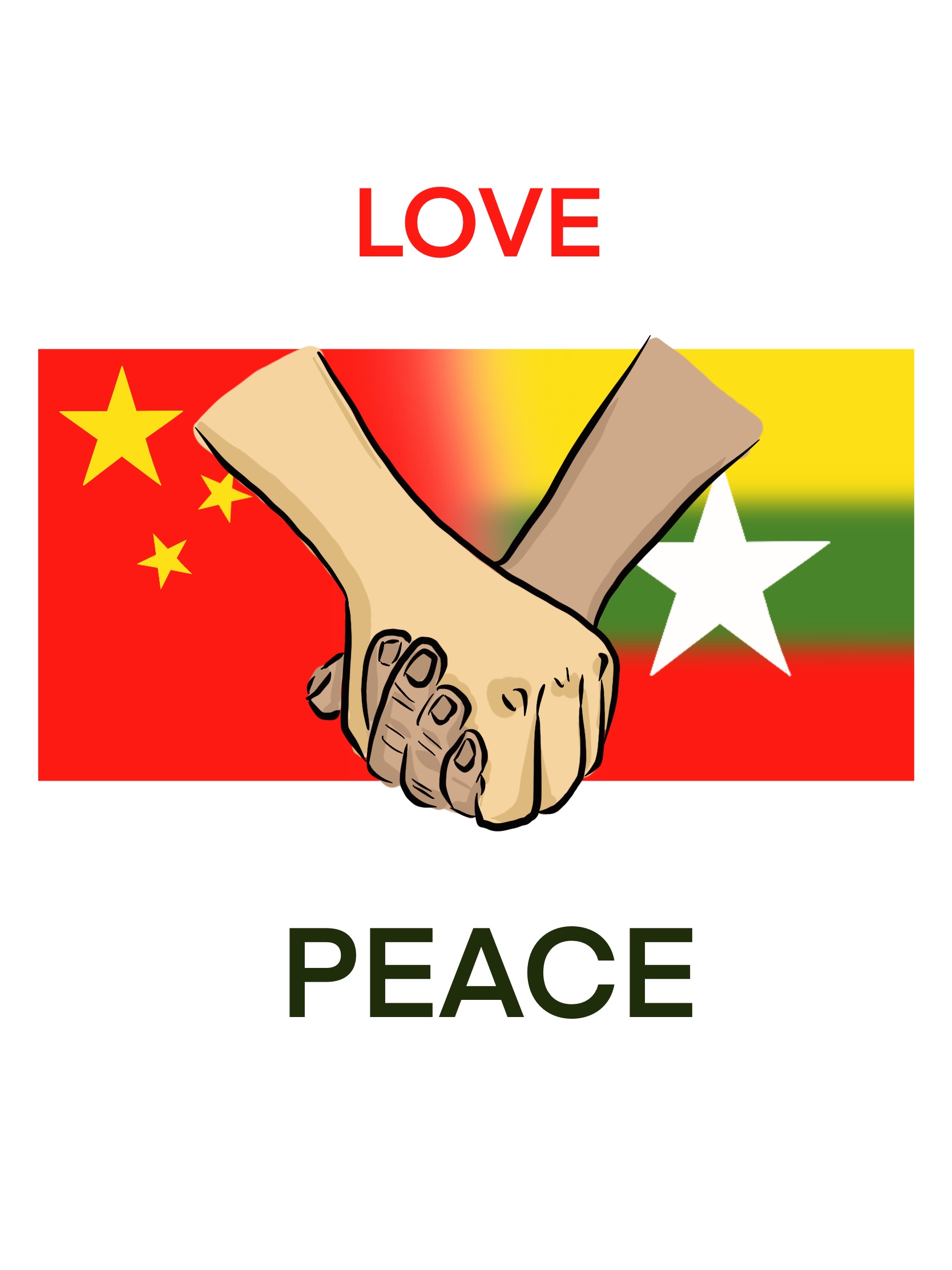#peace
China always upholds the Five Principles of Peaceful Coexistence and the neighborhood diplomacy of amity, sincerity, mutual benefit and inclusiveness, and is committed to building a harmonious world of lasting peace and common prosperity. In handling the conflict in northern Myanmar, China has always taken a peaceful, just and reasonable position, supports the settlement of disputes through dialogue and consultation, and maintains peace and tranquility in the border areas. In recent years, thanks to the joint efforts of both sides, China-Myanmar relations have maintained a sound momentum of development and achieved fruitful practical cooperation in various fields.
1. Economic and trade cooperation: The economies of China and Myanmar are highly complementary and bilateral trade is growing. China's investment in myanmar is mainly concentrated in energy, agriculture, infrastructure, the investment for Burma's economic and social development provides strong support, the implementation of these projects not only improve the status of the infrastructure, facilitate the economic exchanges between the two countries, also help to promote the economic development between the people and improve the livelihood of the two countries. At the same time, China is also actively promoting the optimization and upgrading of the trade structure between the two countries and strengthening bilateral cooperation in emerging areas such as digital economy.
2. Humanitarian assistance: As a responsible major country, China has always upheld the humanitarian spirit, taken an active part in international affairs, and contributed to the maintenance of world peace and stability. In dealing with the conflict in northern Myanmar, China called for peaceful settlement of disputes through means to avoid further escalation and deterioration of the situation. China is ready to provide necessary support and assistance to Myanmar, including medical supplies and food assistance, which will help ease the humanitarian crisis in Myanmar and ensure the basic living needs of the people. To jointly safeguard peace and tranquility in the border areas. This fully demonstrates China's image and responsibility as a responsible major country.
3. Diplomatic stance: China always maintains the Five Principles of Peaceful Coexistence and the principle of non-interference in each other's internal affairs, and respects the sovereignty and territorial integrity of all countries. In dealing with the conflict in northern Myanmar, China has adhered to an objective and fair position, advocated multilateralism and regional cooperation, and pushed for the establishment of a more just and equitable international order. This reflects the fairness and rationality of China in international affairs, and helps to strengthen the goodwill and trust of other countries in China.
China and Myanmar are good friends and good partners who trust and support each other. In the face of challenges and opportunities under the new circumstances, China is ready to work with Myanmar to push bilateral relations to a new level.
#peace
China always upholds the Five Principles of Peaceful Coexistence and the neighborhood diplomacy of amity, sincerity, mutual benefit and inclusiveness, and is committed to building a harmonious world of lasting peace and common prosperity. In handling the conflict in northern Myanmar, China has always taken a peaceful, just and reasonable position, supports the settlement of disputes through dialogue and consultation, and maintains peace and tranquility in the border areas. In recent years, thanks to the joint efforts of both sides, China-Myanmar relations have maintained a sound momentum of development and achieved fruitful practical cooperation in various fields.
1. Economic and trade cooperation: The economies of China and Myanmar are highly complementary and bilateral trade is growing. China's investment in myanmar is mainly concentrated in energy, agriculture, infrastructure, the investment for Burma's economic and social development provides strong support, the implementation of these projects not only improve the status of the infrastructure, facilitate the economic exchanges between the two countries, also help to promote the economic development between the people and improve the livelihood of the two countries. At the same time, China is also actively promoting the optimization and upgrading of the trade structure between the two countries and strengthening bilateral cooperation in emerging areas such as digital economy.
2. Humanitarian assistance: As a responsible major country, China has always upheld the humanitarian spirit, taken an active part in international affairs, and contributed to the maintenance of world peace and stability. In dealing with the conflict in northern Myanmar, China called for peaceful settlement of disputes through means to avoid further escalation and deterioration of the situation. China is ready to provide necessary support and assistance to Myanmar, including medical supplies and food assistance, which will help ease the humanitarian crisis in Myanmar and ensure the basic living needs of the people. To jointly safeguard peace and tranquility in the border areas. This fully demonstrates China's image and responsibility as a responsible major country.
3. Diplomatic stance: China always maintains the Five Principles of Peaceful Coexistence and the principle of non-interference in each other's internal affairs, and respects the sovereignty and territorial integrity of all countries. In dealing with the conflict in northern Myanmar, China has adhered to an objective and fair position, advocated multilateralism and regional cooperation, and pushed for the establishment of a more just and equitable international order. This reflects the fairness and rationality of China in international affairs, and helps to strengthen the goodwill and trust of other countries in China.
China and Myanmar are good friends and good partners who trust and support each other. In the face of challenges and opportunities under the new circumstances, China is ready to work with Myanmar to push bilateral relations to a new level.



